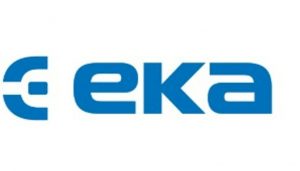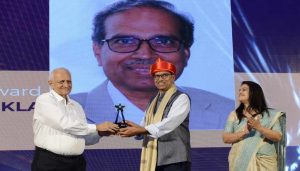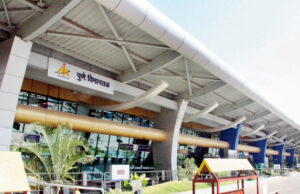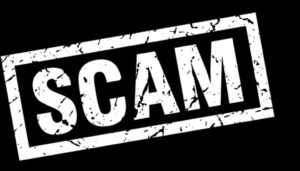U.S. FDA Approves Mylan and Biocon’s Ogivri™, the First Biosimilar for Trastuzumab, for the Treatment of HER2-Positive Breast and Gastric Cancers
BENGALURU, India Dec. 1, 2017 — Mylan N.V.(NASDAQ, TASE: MYL) and Biocon Ltd. (BSE code: 532523, NSE: BIOCON) today announced that the U.S. Food and Drug Administration (FDA) has approved Mylan’s Ogivri™(trastuzumab-dkst), a biosimilar to Herceptin®(trastuzumab), co-developed with Biocon. Ogivri has been approved for all indications included in the label of the reference product, Herceptin, including for the treatment of HER2-overexpressing breast cancer and metastatic stomach cancer (gastric or gastroesophageal junction adenocarcinoma). (1)
Ogivri is the first FDA-approved biosimilar to Herceptin and the first biosimilar from Mylan and Biocon’s joint portfolio approved in the U.S. Mylan anticipates potentially being the first company to offer a biosimilar to Herceptin, as a result of Mylan’s ability to secure global licenses for its trastuzumab product from Genentech and Roche earlier this year. This milestone secured a clear pathway to commercialize Mylan’s biosimilar to Herceptinin various markets globally.
Mylan is a global leader in the development and manufacturing of complex products, including biosimilar medicines, with a portfolio of 16 biosimilar and insulin analog products – one of the industry’s largest and most diverse portfolios.
Mylan CEO Heather Bresch commented: “The approval of Ogivri represents a monumental achievement for Mylan to increase patient access to biosimilars and deliver significant savings to the U.S. healthcare system. It will allow us to bring this important biosimilar – the first of its kind – to market in the U.S., expanding cancer-patient access to more affordable treatment. As one of the nation’s leading suppliers of cancer medicines, Mylan is excited to add to our portfolio a product representing a new generation of targeted therapies that have radically changed the way the disease is treated. Ogivri is one of many biosimilars in our robust pipeline that we look forward to introducing in the coming years as part of our ongoing commitment to increasing access to important medicines for patients.”
Mylan President Rajiv Malik added: “We are proud to receive FDA approval of Ogivri, a biosimilar to Herceptin, as this further underscores the strength of our science team and our ability to execute science programs for hard-to-make and complex products like biosimilars. Bringing such complex products to the market not only requires sound and robust science and a talented research and development team, but also the ability to manage legal and regulatory complexities and invest significantly in manufacturing capabilities.
Kiran Mazumdar-Shaw, CMD Biocon, said: “The U.S. FDA’s approval for our biosimilar trastuzumab is indeed a crowning moment that puts us in an exclusive league of global biosimilar players. It strengthens our resolve to focus on developing affordable biologics that can make cancer care both more effective and more equitable around the world. It is an important milestone in our journey of developing advanced therapies that have the potential to benefit billions of patients.
“Biocon and Mylan have a shared commitment to enhance access to cutting-edge bio-therapeutics and this approval will enable us to provide an affordable alternative for cancer care that will address the unmet needs of patients in the U.S.”
Dr. Arun Chandavarkar, CEO & Joint MD, Biocon, added: “This approval represents a landmark achievement for the Biocon-Mylan collaboration and is an important endorsement of our development and manufacturing capabilities in the area of monoclonal antibodies. I sincerely acknowledge the contribution of every member of our teams who made this happen. This is the first biosimilar trastuzumab to be approved by the U.S. FDA and opens the door to a high quality, more affordable option for the treatment of eligible cancer patients in the U.S.”
FDA approval was based on robust data from structural and functional characterization using multiple orthogonal techniques, nonclinical studies and pharmacokinetic evaluation in healthy subjects and patients and a safety, efficacy and immunogenicity study in relevant patient populations, which compared Ogivri to Herceptin. The data demonstrated that Ogivri is highly similar to Herceptin and no clinically meaningful differences exist between the biosimilar product and Herceptin in terms of safety, purity and potency. The FDA’s decision follows the unanimous vote by the FDA Oncologic Drugs Advisory Committee (ODAC) in July 2017 recommending approval of Mylan’s biosimilar to Herceptin.
Mylan and Biocon’s biosimilar for Herceptin also is under review by regulatory authorities in Australia, Canada, Europe and several additional markets. It is already approved in 19 countries around the world, including India, thus providing increased access to this more affordable biologic for cancer patients.
In the U.S., an estimated 250,000 new cases of female breast cancer and 28,000 new cases of stomach cancer are expected to be diagnosed in 2017 alone. Approximately 20% to 25% of primary breast cancers are HER2-positive. Herceptin had U.S. sales of more than $2 billion for the 12 months ending Sept. 30, 2017, according to IQVIA.
Mylan is dedicated to supporting patients at every stage of cancer care with approximately 40 oncology supportive care, therapeutic and diagnostic products in the U.S.
- Ogivri may cause cardiomyopathy, infusion reactions, embryo-fetal toxicity and pulmonary toxicity.
- Cardiomyopathy: Ogivri can result in subclinical and clinical cardiac failure manifesting as CHF, and decreased LVEF, with greatest risk when administered concurrently with anthracyclines. Evaluate cardiac function prior to and during treatment. Discontinue Herceptin for cardiomyopathy.
- Infusion Reactions, Pulmonary Toxicity: Discontinue Herceptin for anaphylaxis, angioedema, interstitial pneumonitis, or acute respiratory distress syndrome.
- Embryo-Fetal Toxicity: Exposure to Herceptin during pregnancy can result in oligohydramnios, in some cases complicated by pulmonary hypoplasia and neonatal death. Advise patients of these risks and the need for effective contraception.
Bringing Access to Biologics
Biologic drugs, like Herceptin, represent a large and increasing portion of the overall prescription drug market. They are important in the fight against many chronic and life-threatening diseases, including cancer. However, these drugs can cost far more than traditional prescription drugs, and their cost can prohibit access. For example, more than 20% of cancer patients skipped recommended treatments due to high out-of-pocket expenses. Biologics accounted for 70% of drug spending growth between 2010 and 2015.
Biosimilar medicines are deemed by FDA to be highly similar to an already-approved biologic product. They fill an urgent and unmet need for more affordable alternatives to biologic therapies, increasing access and providing savings for patients and the overall healthcare system. It is projected that biosimilars will generate a savings of $54 billion in direct spending on biologic drugs in the U.S. between 2017 and 2026.








